1. Monopoly

The ultimate test of endurance and ruthlessness, Monopoly’s design guarantees only one winner, often leading to prolonged suffering for the remaining players. Arguments frequently erupt over property trades and perceived unfair advantages, particularly the controversial “Free Parking” house rule that can delay the inevitable bankruptcy. Invented to illustrate the pitfalls of unchecked capitalism, the game ironically encourages the kind of cutthroat dealings that can cause real-life friction, forcing players into a cycle of debt and despair until one person owns everything. Many players cite the moment they landed on a street with a hotel as the instant a friendship cracked.
2. Risk
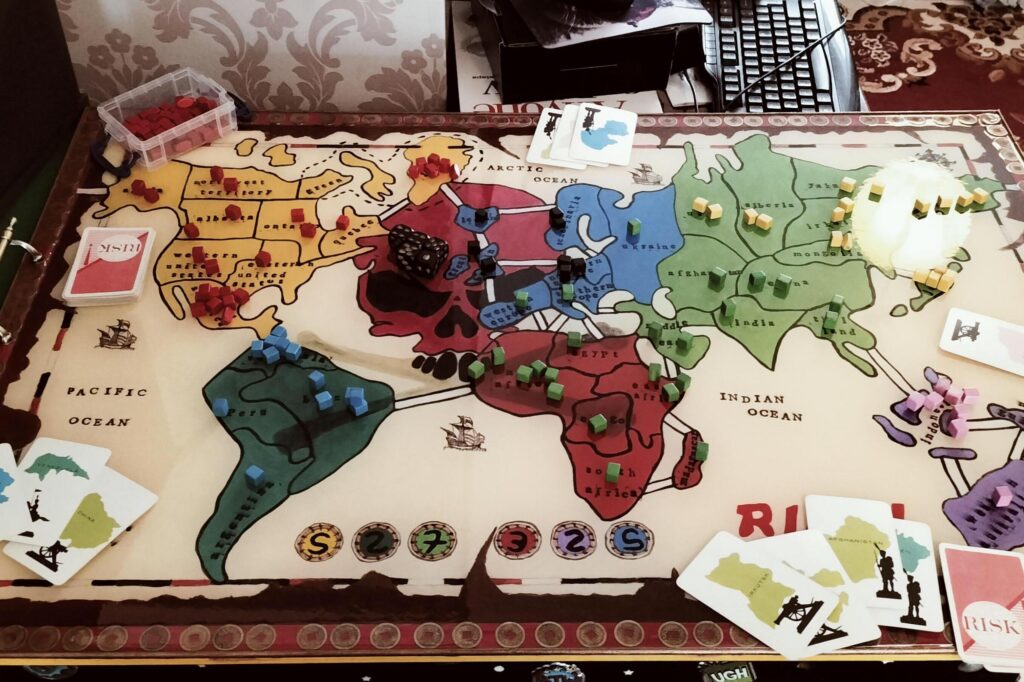
This strategy game of global domination is designed around military conquest, but its most dangerous weapon is the diplomatic alliance. Players often forge temporary partnerships to eliminate a mutual threat, only for the “ally” to launch a surprise attack later in the game. The heavy reliance on dice rolls for combat adds a frustrating layer of luck to strategic planning, meaning a perfectly executed plan can be foiled by a bad roll, leading to accusations of the dice being weighted or the “Gambler’s Fallacy” influencing aggressive plays. The game’s length and zero-sum nature ensure that whoever is eliminated early often harbors a grudge against the player who dealt the final blow.
3. The Settlers of Catan
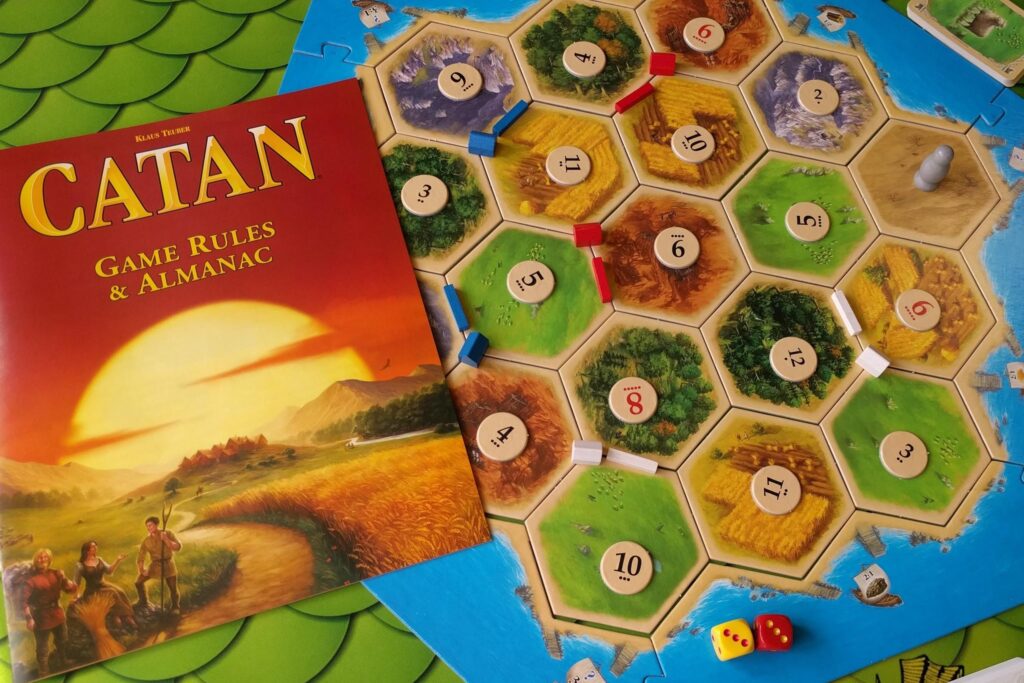
Catan is notorious for turning friendly negotiation into a cold-blooded resource war, despite its gentle aesthetic. The core mechanic involves bartering for resources like sheep, wheat, and ore, giving players leverage to act like “resource hoarders.” The biggest source of conflict is the use of the Robber, a piece that blocks resource production and steals cards, which can be ruthlessly placed on the settlement of the player who is currently ahead. Friends find themselves forced to be cruel to be kind, or at least, to win, by cutting off a vital supply line or refusing a trade for a single, critical resource needed for victory.
4. Diplomacy
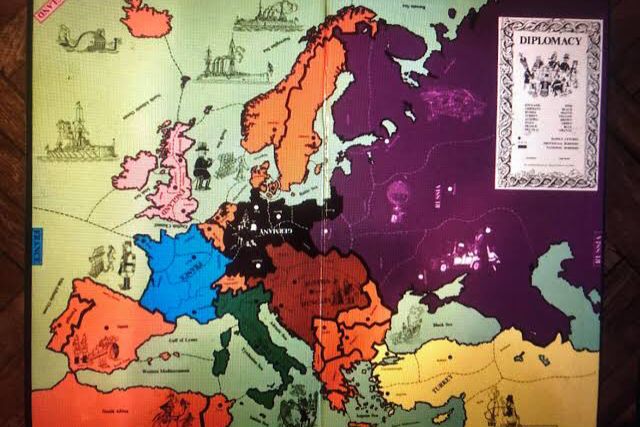
As its name suggests, this game about World War I-era Europe is entirely about negotiation and betrayal, with a rule set that explicitly allows, and often requires, backstabbing to secure a win. The unique system sees all players simultaneously write down their military orders after a long period of face-to-face deal-making, meaning an agreed-upon alliance can be unilaterally broken by a player submitting a different move. This highly social and political dynamic encourages outright lies and misdirection, making it arguably the single most intense friendship-ending board game, as players often feel personally betrayed rather than simply outplayed.
5. Scrabble
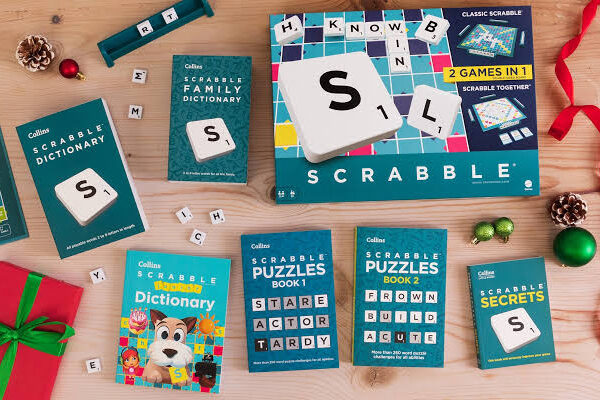
While appearing innocuous, Scrabble is a high-stakes vocabulary duel where friendships can be strained over a single, high-scoring word. Arguments commonly center around the legitimacy of obscure, often two-letter words like “qi” or “za,” or the correct placement of a tile that snags a triple word score. The silent judging and inherent elitism that can arise from one player having a far superior vocabulary or a knack for finding high-value squares can breed resentment. Challenging a word, and losing the next turn for being wrong, is a risk that often pits player against player in a pedantic, yet intensely competitive, battle.
6. Cranium
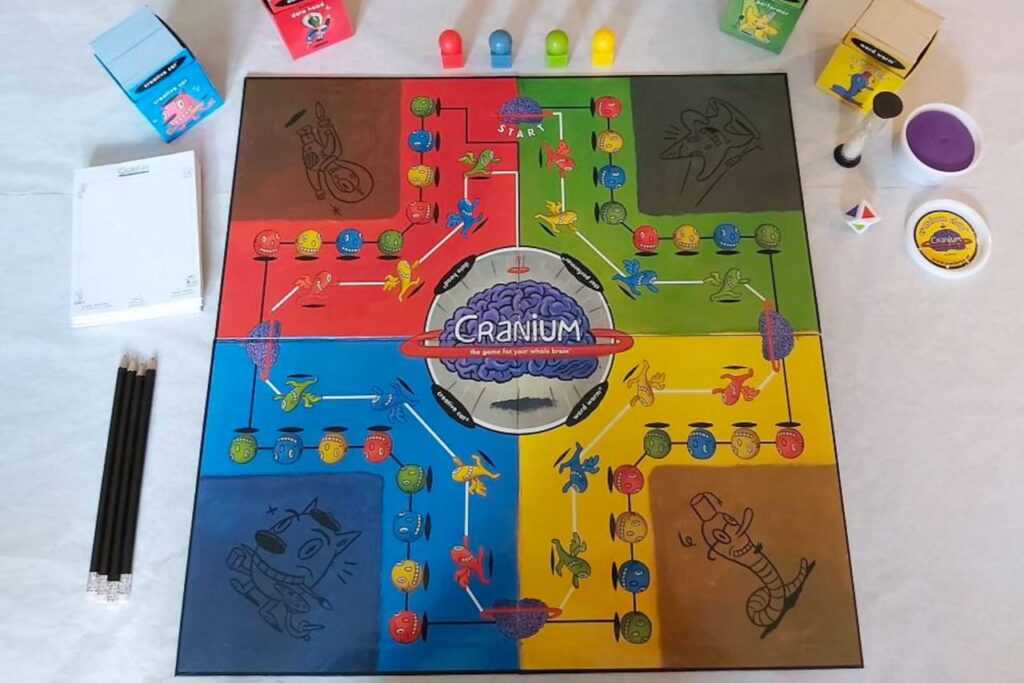
This game is a mix of Pictionary, Charades, Trivial Pursuit, and clay sculpting, which inevitably pits players with different skill sets against each other. The core problem arises when teammates are forced to rely on each other’s weakest talents, which can lead to friction and frustrated outbursts under the pressure of the timer. A friend who is normally calm may become infuriated when their partner cannot correctly hum a song or sculpt a recognizable object, transforming game night into an uncomfortable public critique of a person’s creative or intellectual abilities.
7. Ticket to Ride
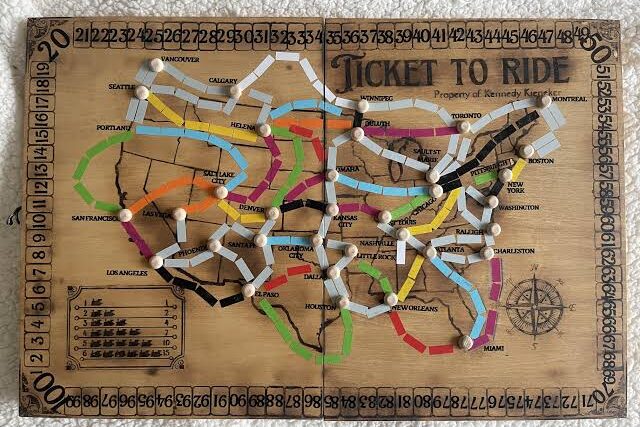
This visually charming game of connecting train routes across a map can turn surprisingly cutthroat, as players race to complete their secret Destination Tickets. Conflict erupts when a player deliberately blocks a critical, narrow path, often referred to as “train-blocking,” preventing an opponent from completing a high-scoring route. Since Destination Tickets are kept secret, the blocking often feels like a personal attack or a lucky, yet devastating, strategic strike. This frustration is compounded by the game’s simple rules, which means there are few “comeback” mechanics for a player whose route has been sabotaged.
8. Sorry!
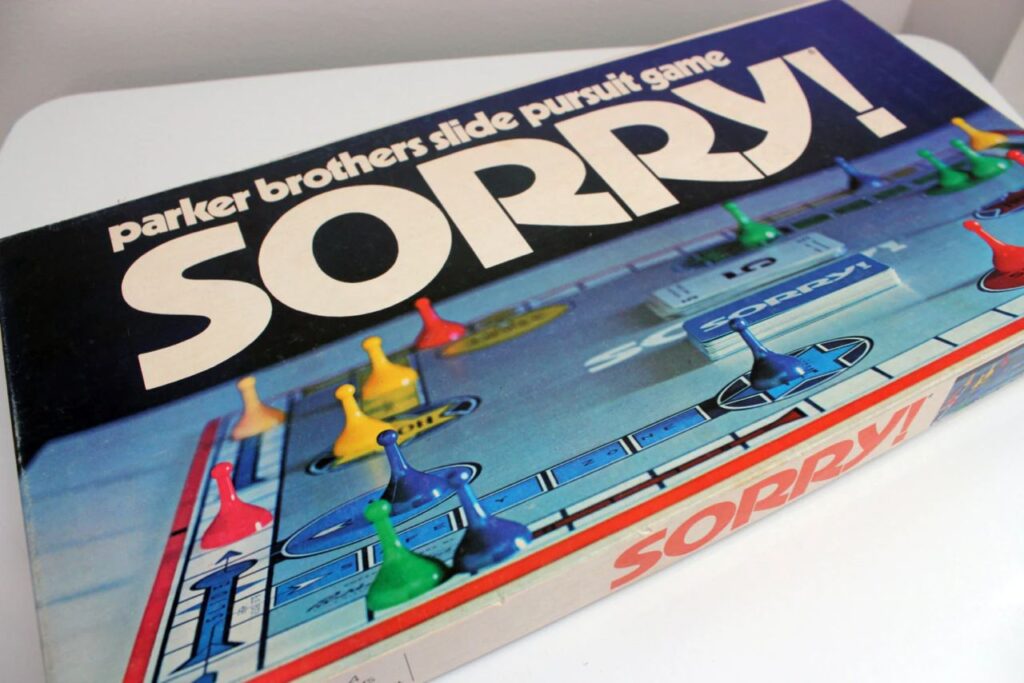
A game of pure chance and simple mechanics, the name “Sorry!” is actually an expression of pure irony, as the game’s goal is to intentionally sabotage opponents. The use of certain cards, namely the “Sorry!” card itself, allows a player to send an opponent’s piece all the way back to the start. Because there is no strategy involved, this move feels entirely personal, often leading to retaliatory strikes and a cycle of resentment. It’s an aggressive game of zero-sum payback that teaches players to take pleasure in their friends’ misfortune, causing genuine anger over a game where only luck is the true variable.
9. Trivial Pursuit
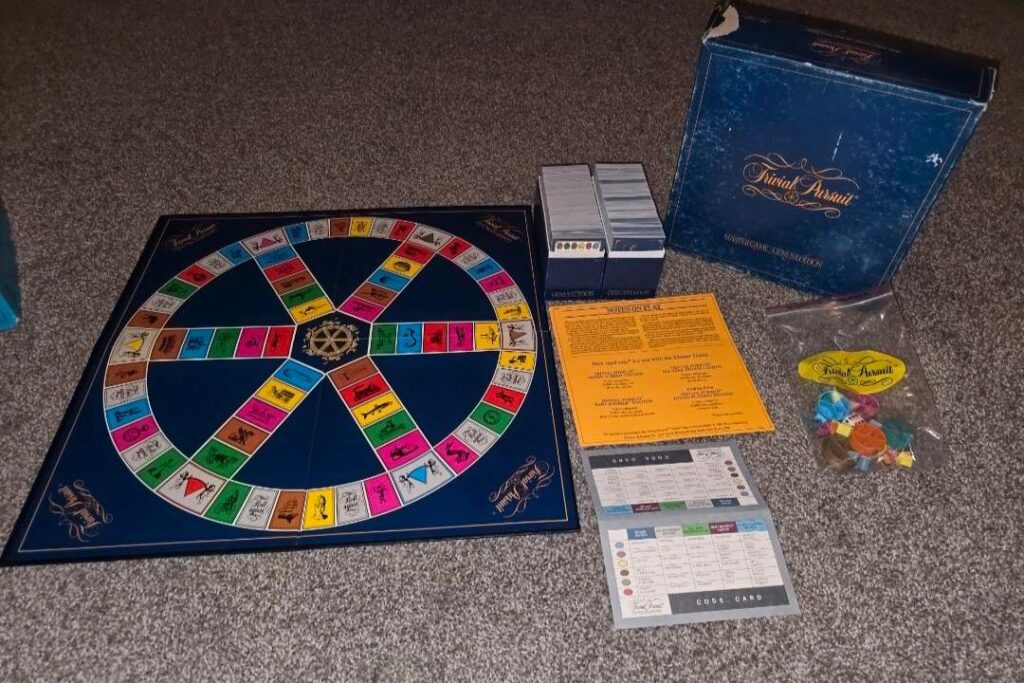
Trivial Pursuit can be difficult for friendships because it is a direct test of accumulated knowledge, which can be an intimidating and humbling experience. The intense focus on obscure facts means that one player’s dominance, or another’s total lack of knowledge in a specific category, can lead to feelings of intellectual superiority or inadequacy. Arguments often center on the wording of a question or the accuracy of an answer, as players debate historical, scientific, or pop-culture facts. The slow, drawn-out process of collecting all six colored wedges can also lead to exasperated sighs from players stuck on a difficult category.
10. Munchkin
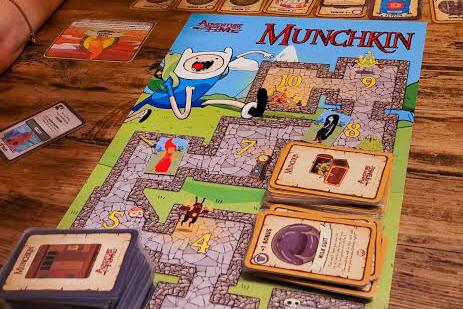
This satirical card game about dungeon crawling actively encourages players to gang up on whoever is winning, using cards to sabotage their combat, power-up the monsters, or simply ruin their turn. The rules explicitly allow for deal-making to assist in monster fighting, creating a marketplace for temporary alliances and outright bribery. The constant backstabbing and shifting loyalties, while the core mechanic, can lead to genuine irritation, as players who were just helped by a friend are expected to turn around and stab them in the back on the very next turn to keep them from winning.
11. Uno
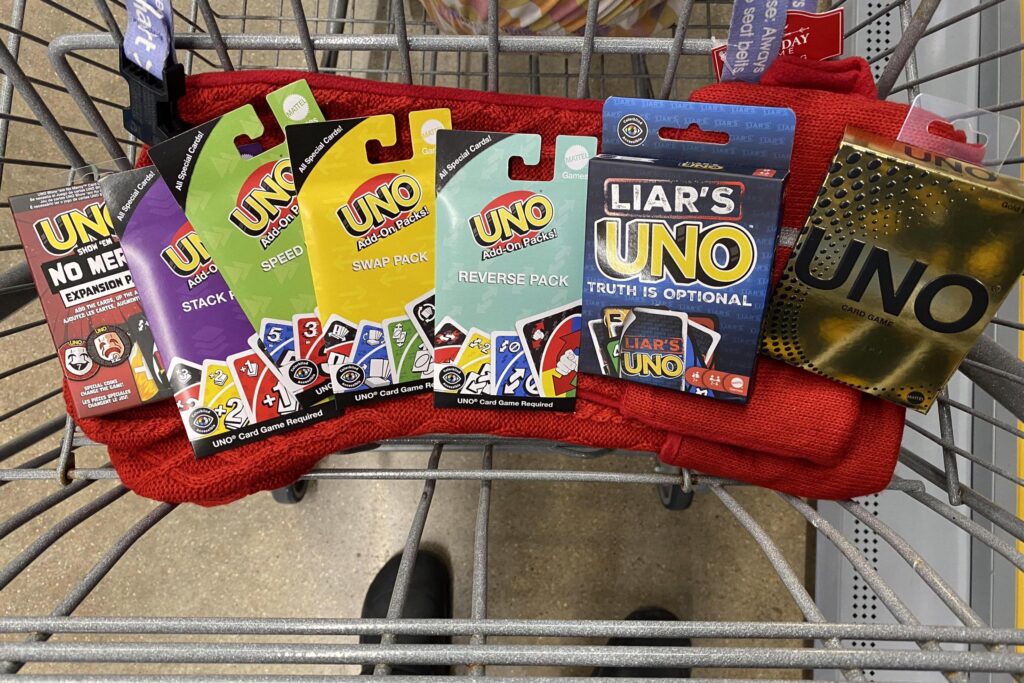
A seemingly innocent card game, Uno’s simple rules belie its potential for bringing out a player’s inner villain. The infamous “Draw Two,” “Draw Four,” and “Skip” cards are weapons of pure frustration, often used with malicious intent right before a player is about to win. The rule requiring a player to shout “Uno” before laying their second-to-last card is a common source of conflict, as opponents are quick to penalize them with a Draw Two card for forgetting. The game’s quick, retaliatory nature means that grudges are formed and paid back immediately, often leading to shouting and playful (or not-so-playful) table-slapping.
12. Jenga

Jenga is less about direct conflict and more about psychological warfare and the sheer tension of failure. The game’s premise is to remove a block from a tower and place it on top without causing it to collapse. The moment of conflict often comes from a player strategically choosing a block that they know will place maximum stress on the subsequent player, or even lightly nudging the table after their turn. While there are no complex rules to argue over, the public and spectacular nature of a total tower collapse, and the blame that comes with it, can make the loser feel personally responsible for ruining the game’s perfect tension.
So, whether you’re cornered by the bank in Monopoly or ruthlessly betrayed in Diplomacy, these games have a unique power to stir up strong emotions and push our friendships to the limit. We may have sworn off the game in a fit of rage, but the thrill of the victory and the memory of the sheer, ludicrous drama always call us back for one more round. Just remember to pick up the pieces, and the friendships, after the dust settles.
This story 12 Board Games That Ruined Friendships (And We Still Loved Them) was first published on Daily FETCH


